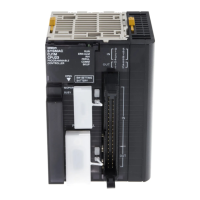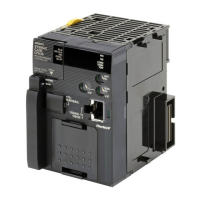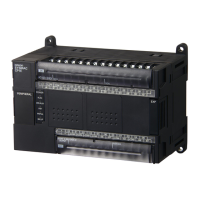Overview SECTION 13 CFR (Title 21 Part 11) Functionality
201
SECTION 13
CFR (Title 21 Part 11) Functionality
This chapter describes CX-Supervisor CFR functionality. Part 11 of Title 21 of
the Code of Federal Regulations (CFR) specifies guidelines for the keeping of
electronic records and the use of electronic signatures. CX-Supervisor
provides features that can assist customers to comply with the validation
requirements of Part 11 of Title 21 of the Code of Federal Regulations (CFR).
13-1 Overview
CX-Supervisor supports compliance with CFR requirements by allowing
generation of Audit Trail events, and reporting those selected events as
database records. A CX-Supervisor Audit Trail 'event' can be one of three
different types....
• A CX-Supervisor Point. An Audit Trail event is triggered by a change in
value of a CX-Supervisor point.
• A CX-Supervisor Alarm. An Audit Trail event is triggered by a change in
state of a CX-Supervisor alarm.
• A CX-Supervisor Event or Error. An Audit Trail event is triggered by any
event\error that is reported into the CX-Supervisor Event\Error Log.
An Audit Trail project may be configured to record any of these 'events',
individually or in combination. When configured to generate an Audit Trail, CX-
Supervisor will automatically create an Audit Trail database file, including 4
database tables. (One table each for Points, Alarms, Events and Errors).
When configured to create Audit Trail records, CX-Supervisor runtime will add
a record into the Audit Trail database tables as each Audit Trail event
condition is triggered.
13-2 Supported Databases
CX-Supervisor supports two types of database for Audit Trails:
• Microsoft Access (*.mdb) database files.
•SQL Server.
13-3 CX-Supervisor Runtime User and Audit Trail UserID
Each record logged into the Audit Trail database tables includes a UserID
property. The UserID is always the currently logged in CX-Supervisor user in
runtime. CX-Supervisor does not normally force any user to be logged in at
runtime.
If no user is logged in when Audit Trail logging is active, then each data entry
reports "User Unknown" into the UserID field.
If the application requirements demand that current user must always be
identified for Audit Trail logging, then the application designer must ensure
that a runtime user is always logged in. For example by forcing a log-in at
runtime initialisation and then disabling logout in runtime.
